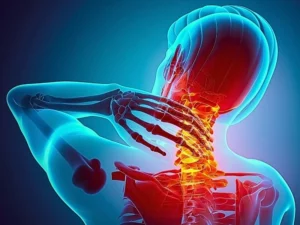The United States Department of Transportation’s Federal Motor Carrier Safety Administration (FMCSA) released a plan recently that is designed to make it easier to identify trucking companies that are potentially unsafe and get their trucks off of America’s roadways. The update to the FMCSA’s safety fitness rating methodology will integrate information about on-road safety inspections, crash reports and the results of carrier investigations to evaluate the overall safety fitness of each carrier. As a result, the FMCSA will be able to evaluate the safety of approximately 75,000 motor carrier companies each month- an impressive increase from the 15,000 they are currently able to assess annually. Currently, less than half of the companies investigated actually receive a safety rating.

The Safety Fitness Determination (SFD) rule will eliminate the current rating system which has been in effect since 1982. Currently, federally regulated motor carriers in the United States are rated either satisfactory, conditional or unsatisfactory. Under the new rule, companies will either be determined to have passed, or they will be deemed unfit. A determination of unfit will remove unsafe carriers from our roadways and they will be required to improve or cease operations entirely. Determinations will be based on:
- Investigation results
- A combination of investigation information and on-road safety data
- Performance in relation to the Compliance, Safety, Accountability (CSA) Safety Measurement System (SMS)
Safety Measurement System BASICs
The SMS uses data from on-road inspections, crashes and the federal motor carrier census to evaluate a carrier’s performance in the following Behavior Analysis and Safety Improvement Categories(BASICs):
- Unsafe Driving: Careless or dangerous operation of commercial motor vehicles including violations like speeding, reckless driving, inattentive driving and similar actions.
- Hours of Service: Violations would include driving while ill or fatigued, or not complying with Hours of Service (HOS) regulations.
- Driver Fitness: Drivers who do not have adequate training, experience or the proper, valid Commercial Driver License, and those who are not medically fit to operate a commercial vehicle would be in violation.
- Controlled Substances/ Alcohol: Driving while impaired due to the consumption of alcohol, illegal or prescription drugs or over the counter medications will result in violations.
- Vehicle Maintenance: Violations include the failure to maintain a commercial motor vehicle and the failure to prevent loads from shifting.
- Hazardous Materials: Not complying with Hazardous Materials (HM) regulations is a violation.
Additionally, carriers crash history, including frequency and severity, will be evaluated. It is estimated that less than 300 motor carriers would be deemed unfit each year based solely upon on-road violations. According to the agency’s analysis, the motor carriers that are identified by on-road safety data have accident rates nearly four times higher than the national average. Some of the most common violations that cause numerous large truck crashes each year include failure to make proper vehicle repairs and driving in excess of permitted operating hours.
While critics of the new plan assert that using the data that is collected during roadside audits is not an accurate way to determine the trucking company’s crash risk, the new method is certainly more efficient than the current auditing procedures being performed.
Other Recent FMCSA Actions that Affect Truck Safety
- Online Unified Registration System: The new URS, which will be fully implemented this year, will enable the FMCSA to more easily identify unsafe motor carrier companies who attempt to regain USDOT registration by registering as a completely different company after being deemed unfit.
- Electronic Logging Devices: In an effort to reduce or eliminate non-compliance with hours of service regulations that are designed to prevent driver fatigue, the FMCSA will now require drivers to use electronic logging devices. It is estimated that the implementation of this rule will save approximately 26 lives and prevent 562 severe injuries that result from large truck accidents. ELDs monitor driving hours, engine hours, vehicle location, movement and miles driven.
- Use of Safety Belts by Passengers: A proposed rule would require all passengers in large commercial trucks to wear safety belts. Under the new rule, both truck drivers and trucking companies would be held responsible for requiring all passengers to buckle up. According to the National Highway Traffic Safety Administration, approximately 275 occupants of large commercial trucks who lost their lives due to crashes in 2013 were not wearing safety belts.
- Coercion Prohibited: Truckers are often pressured by shippers, receivers, motor carrier companies and trucking intermediaries to violate federal safety regulations. In fact, many commercial truckers report being threatened with job termination, reduced pay, and other direct retaliations. Such violations recklessly jeopardize the safety of truck drivers as well as other motorists who share the road. The new rule will enable the FMCSA to take enforcement action against anyone in the transportation chain who attempts to coerce a truck driver to violate safety regulations.







